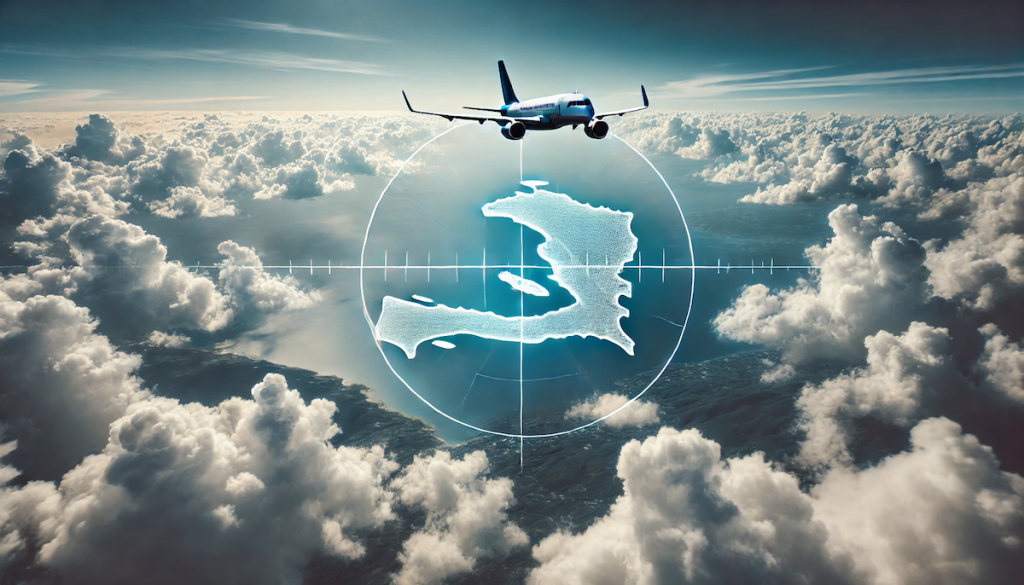FAA Bans U.S. Airlines from Flying Below Feet Over Haiti Due to Rising Security Concerns

12 November 2024 – The Federal Aviation Administration (FAA) has issued a new safety directive for U.S. airlines, restricting flights from flying below 10,000 feet over Haiti. This measure comes in response to escalating security concerns in the area, specifically near Port-au-Prince, where gang-related violence has intensified. The recent incidents, including gunfire striking planes from U.S. carriers such as Spirit Airlines and JetBlue, have prompted the FAA to act swiftly to protect passengers and crew in the region.
What Prompted the FAA Ban?
The FAA’s decision to enforce this altitude restriction is directly related to the increasing risk of gang activity in Haiti. Recent reports confirm that flights at lower altitudes have faced potential threats due to the unrest near the airport. Both a Spirit Airlines and a JetBlue aircraft encountered gunfire during landing and takeoff at Port-au-Prince’s Toussaint Louverture International Airport, briPort-au-Prince’she severe dangers posed by operating flights at lower altitudes in the vicinity.
While these incidents, fortunately, did not result in injuries, they underscore the need for enhanced safety measures to protect travellers. The FAA’s new rule mandating a minimum altitude of 10,000 feet aims to ensure that aircraft remain out of range from potential ground-based threats, creating a safer environment for air travel in and out of Haiti.
Implications for U.S. Airlines and Travelers
This altitude restriction affects all U.S. carriers operating over Haiti to minimize exposure to potential gunfire and other ground-based hazards associated with gang violence. Although most commercial flights typically cruise above 10,000 feet, the directive will influence the approach, departure, and operation procedures of flights to Port-au-Prince and other destinations in Haiti. Airlines may adjust flight paths and schedules or even reconsider some routes in response to these risks.
Passengers planning to travel to or near Haiti should know that airlines may implement changes to ensure compliance with the FAA’s altitude directive. These adjustments could result in sligFAA’s changes to flight durations or departure times. U.S. carriers will likely continue to assess the situation, and travellers are advised to stay updated by checking announcements from the FAA and their respective airlines.
The Broader Impact on Regional Aviation Safety
The FAA regularly monitors global security risks and has issued similar altitude restrictions in other conflict-prone regions. Such proactive measures aim to protect the lives of passengers and crew, particularly when on-ground threats become apparent. Over recent years, different areas, such as parts of the Middle East and Eastern Europe, have seen comparable airspace restrictions, underscoring the FAA’s commitment to keeping travellers safe in volatile areas.
The FAA’s decision also aligns with international aviation protocols, where airline and airport safety must be prioritized when operating in regions impacted by political or social instability. With HaitiHaiti’sing struggle against gang violence, the FAA’sFAA’staltituHaiti’sreinforcestical safety buffer for flighFflighFAA’savelingthis area.
Steps Going Forward
The FAA will likely continue evaluating the situation in Haiti, potentially adjusting the restriction if stability improves or further action is deemed necessary. For now, this altitude mandate provides heightened security, and U.S. carriers must comply with the regulation to protect passengers flying over Haiti.
The FAA highlights the evolving challenges in global aviation and FAA’s need to adapt to emerging threats. As Haiti addresses its internal security concerns, air travellers and industry professionals will watch closely, hoping for a resolution that allows for future safe, unrestricted air travel.
Travelers are encouraged to consult FAA announcements and airline advisories for the latest FAA advisories, safety directives, and travel updates regarding flights over Haiti. Safe travels remain the priority, and this directive reflects their ongoing effort to safeguard U.S. flights in the face of global security concerns.
NBC News video https://www.youtube.com/watch?v=PnXCaJ9JOcs
For more blogs, see our blog section https://anavidtraveller.com/all-blogs/











